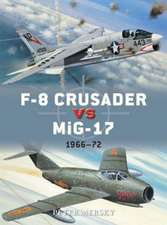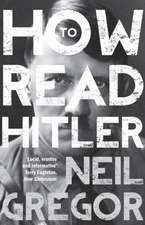The Chechen Wars: Will Russia Go the Way of the Soviet Union?
Autor Matthew Evangelistaen Limba Engleză Paperback – 12 noi 2002
Following the breakup of the Soviet Union, Boris Yeltsin improvised a system of "asymmetric federalism" to help maintain its successor state, the Russian Federation. However, when sparks of independence flared up in Chechnya, Yeltsin and, later, Vladimir Putin chose military action to deal with a "brushfire" that they feared would spread to other regions and eventually destroy the federation. Matthew Evangelista examines the causes of the Chechen Wars of 1994 and 1999 and challenges Moscow's claims that the Russian Federation was too fragile to withstand the potential loss of one rebellious republic. He suggests that the danger for Russia lies less in a Soviet-style disintegration than in a misguided attempt at authoritarian recentralization, something that would jeopardize Russia's fledgling democratic institutions. He also contends that well-documented acts of terrorism by some Chechen fighters should not serve as an excuse for Russia to commit war crimes and atrocities. Evangelista urges emerging democracies like Russia to deal with violent internal conflict and terrorism without undermining the fundamental rights and freedoms of their citizens. He recommends that the United States and other democracies be more attentive to Moscow's violations of human rights and, in their own struggle against terrorism, provide a kind of role model.
Preț: 214.25 lei
Nou
Puncte Express: 321
Preț estimativ în valută:
40.100€ • 42.72$ • 33.95£
40.100€ • 42.72$ • 33.95£
Carte tipărită la comandă
Livrare economică 03-17 aprilie
Preluare comenzi: 021 569.72.76
Specificații
ISBN-13: 9780815724995
ISBN-10: 0815724993
Pagini: 352
Ilustrații: Illustrations
Dimensiuni: 152 x 229 x 18 mm
Greutate: 0.35 kg
Ediția:New.
Editura: Brookings Institution Press
Colecția Brookings Institution Press
ISBN-10: 0815724993
Pagini: 352
Ilustrații: Illustrations
Dimensiuni: 152 x 229 x 18 mm
Greutate: 0.35 kg
Ediția:New.
Editura: Brookings Institution Press
Colecția Brookings Institution Press
Notă biografică
By Matthew Evangelista
Descriere
Following the breakup of the Soviet Union, Boris Yeltsin improvised a system of "asymmetric federalism" to help maintain its successor state, the Russian Federation. However, when sparks of independence flared up in Chechnya, Yeltsin and, later, Vladimir Putin chose military action to deal with a "brushfire" that they feared would spread to other regions and eventually destroy the federation. Matthew Evangelista examines the causes of the Chechen Wars of 1994 and 1999 and challenges Moscow's claims that the Russian Federation was too fragile to withstand the potential loss of one rebellious republic. He suggests that the danger for Russia lies less in a Soviet-style disintegration than in a misguided attempt at authoritarian recentralization, something that would jeopardize Russia's fledgling democratic institutions. He also contends that well-documented acts of terrorism by some Chechen fighters should not serve as an excuse for Russia to commit war crimes and atrocities. Evangelista urges emerging democracies like Russia to deal with violent internal conflict and terrorism without undermining the fundamental rights and freedoms of their citizens. He recommends that the United States and other democracies be more attentive to Moscow's violations of human rights and, in their own struggle against terrorism, provide a kind of role model.












